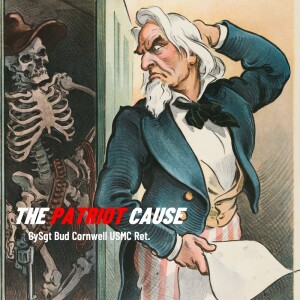
Commissioners representing 49 states gathered in Williamsburg, Virginia August 3-4 for the Simulated Article V Convention hosted by Convention of States Foundation. Six amendments came out of the simulation after careful deliberation and debate.
https://conventionofstates.com/news/official-proposals-passed-at-the-simulated-article-v-convention
Three proposal section titles of the COS Simulated Convention
- Federal Term Limits & Judicial Jurisdiction
- Fiscal Restraints
- Federal Legislative & Executive Jurisdiction
Federalism (see Federalist Papers)refers to a system of government that divides power between member units and a common governing authority; the term can also be used to refer to the theory of or advocacy for this form of government. In the United States, the federal government is the common governing body to which the individual state governments belong.
Compact Theory
https://ballotpedia.org/Compact_theory_(federalism)
Compact theory in the context of American federalism can be traced back to the Mayflower Compact of 1620, which was a contract between the King of England and the Mayflower pilgrims. The compact granted authority to the pilgrims to set up a self-governing colony in America and established the rules for governance. All 13 American colonies were created under similar grants of authority from the King to colonial governments.
The Articles of Confederation were established through a similar delegation of power from state legislatures (which ratified the Articles) to the Continental Congress. Proponents of compact theory argue that the Constitution was established on the same compact (government-to-government) basis.
Proponents of the social contract theory of American federalism argue power was delegated to the national government directly from the people (not from state governments through a compact).
More Episodes
 2024-11-04
2024-11-04
 29
29
 2024-10-02
2024-10-02
 44
44
 2024-09-15
2024-09-15
 34
34
 2024-09-12
2024-09-12
 28
28
 2024-09-11
2024-09-11
 19
19
 2024-09-10
2024-09-10
 21
21
 2024-09-09
2024-09-09
 16
16
 2024-09-04
2024-09-04
 103
103
 2024-09-03
2024-09-03
 24
24
 2024-08-13
2024-08-13
 47
47
 2024-08-12
2024-08-12
 78
78
 2024-07-26
2024-07-26
 65
65
 2024-07-17
2024-07-17
 58
58
 2024-07-08
2024-07-08
 116
116
 2024-06-27
2024-06-27
 63
63
 2024-06-26
2024-06-26
 40
40
 2024-06-21
2024-06-21
 50
50
 2024-06-11
2024-06-11
 39
39
 2024-05-29
2024-05-29
 80
80
Create your
podcast in
minutes
- Full-featured podcast site
- Unlimited storage and bandwidth
- Comprehensive podcast stats
- Distribute to Apple Podcasts, Spotify, and more
- Make money with your podcast
It is Free
- Privacy Policy
- Cookie Policy
- Terms of Use
- Consent Preferences
- Copyright © 2015-2024 Podbean.com





